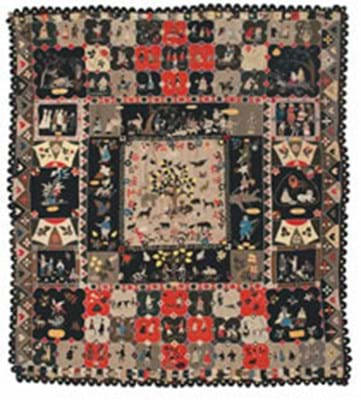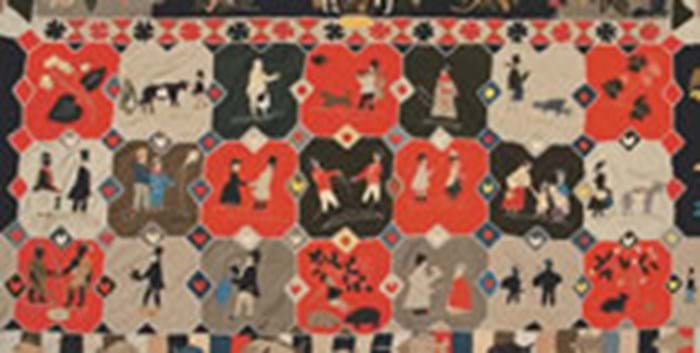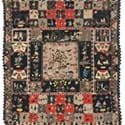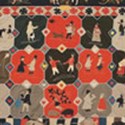The 8ft x 7ft 3in (2.4 x 2.2m) cover was brought to Ms Taylor by a vendor who had inherited it a year ago. "When he took it out of the bag I nearly died," she told ATG, adding that while patchwork quilts don't normally make more than £1000, she didn't know what to put on something this unusual because no-one had seen anything quite like it. In the event she opted for a £5000-8000 estimate, hoping it might make £10,000, only to see those guidelines trebled when two telephone bidders - a dealer and a private collector - battled to secure it, with the dealer finally winning the prize.
The cover is signed and dated Ann West's work, 1820, making it highly unusual as an early English dated patchwork.
There are German felt covers of 18th century date, but this was quintessentially English in its iconography and more akin to the professionally produced folk art pictures of George Smart, although they date from at least a decade later.
Many of the brown, red, beige and black felted wool patches that make up the quilt had been taken from military uniforms, but it is the wealth of embroidered detail worked by Anne West as charming little vignettes with their quirky titles that are the textile's real attraction.
"A piece of folk art plus social history, that's what elevated it on the day. There was something new to see in it every day," said Ms Taylor, who has had the piece with her since last November.
The iconography starts with moralistic scenes from the Old Testament centring on a large panel of the Garden of Eden, but it gradually evolves to more secular subjects and scenes from everyday life. They include a milkmaid, an old lady with her cat, a double wedding, wounded soldiers, a brush seller and an auctioneer with his handkerchief as shown in the detail here.
There was little provenance to go on, although, according to family tradition, there is a connection with Warminster House in Wiltshire. Centuries stored away in attics and, latterly, in a garage, had kept the colours fresh. As well as her name and date, Ann West had added embroidered legends to her handiwork. One of these read Forget me Not.
"We won't now," observed Ms Taylor.
By Anne Crane
Blanket approval for outstanding sewing
More suited to the wall than the bed and more a piece of social history than a functional textile, this 19th century appliqué felt coverlet reaped the rewards when it sold for £24,000 (plus premium) at Kerry Taylor auctions in association with Sotheby's on June 26.








